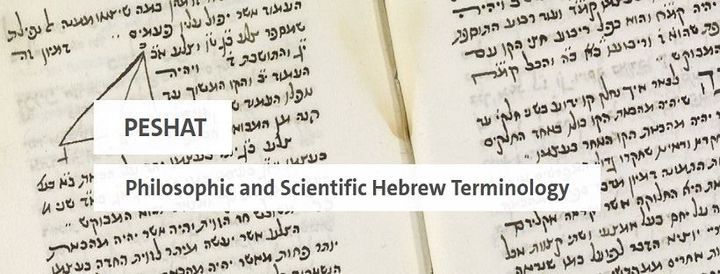
Advertisement
The Study of Philosophy and Science among Jews in 14th- and Early 15th-Century Provence and the Development of the Hebrew LanguageThe translation movements from Arabic, Judeo-Arabic, and Latin into Hebrew in the “long 13th century” generated an enormous number of philosophical, scientific, and theological texts in the Hebrew language. This comprehensive library covered all fields of medieval philosophical and scientific learning.
Through the production of Hebrew versions of classical and medieval source texts, commentaries, encyclopaedias and didactic works, Jews could – for the first time in history - study almost all the branches of Aristotelian philosophy, mathematics, astronomy, astrology, medicine and the other sciences in the language that served as a dominant idiom in other branches of their literary activities (the study of religious traditions, religious and secular poetry, belles-lettres etc.).
The truly encyclopaedic outlook even led to the inclusion and discovery of new fields of study for Jews (e.g., theory of music). It seeded an unprecedented flourishing of the study of philosophy and science among Jewish scholars, who were living and working in a region that was arguably one of the most vibrant political, economic and cultural centres of Europe in that period of time.
The immediate cultural environment of these Jewish scholars was Christian, with Latin the prime language of learned discourse. A growing number of literary activities in the vernacular Romance languages (e.g., Provençal) were also developing there.
Both phenomena left their imprints on Jewish scholarship at that time inside and outside southern France (Italy, Spain). Meanwhile, Provençal-Jewish scholarship in the 14th and 15th centuries never severed its links to the Arabic sources and language that had informed earlier generations, in spite of the chronological and geographical distance from the Jewish-Andalusian tradition.
Individual scholars and networks of Jewish intellectuals therefore operated at a crossroads, where many different strands of influence intersected. They created a unique, multifaceted scholarly culture that found its expression in a rich, literary production in the Hebrew language.
This PESHAT-conference aims to shed light on these developments and the impact they had on the formation of Hebrew as a language of philosophical and scientific discourse. The conference also attempts to shed light on the influence this discourse exercised on other branches of Jewish literature (e.g., rabbinic texts and belles-lettres) in southern France and on other parts of the Jewish diaspora.
The conference will contain a special section dedicated to technical and methodological aspects of the study of philosophical and scientific texts and manuscripts in Hebrew from 14th- and 15th-century Provence. Proposals for papers on such topics related to the application of tools of DH (digital humanities) will be especially welcome.
The organizers of this PESHAT-conference are confident that the conference will take place with the physical presence of the participants in Hamburg on February 21-23, 2022.
Proposals for papers should be sent before August 31, 2021 to the following address:
[email protected].
Advertisement
Event Venue & Nearby Stays
Schlüterstraße 51-55, Schlüterstraße 51-55 Hamburg, 20146 Hamburg, Germany, Hamburg